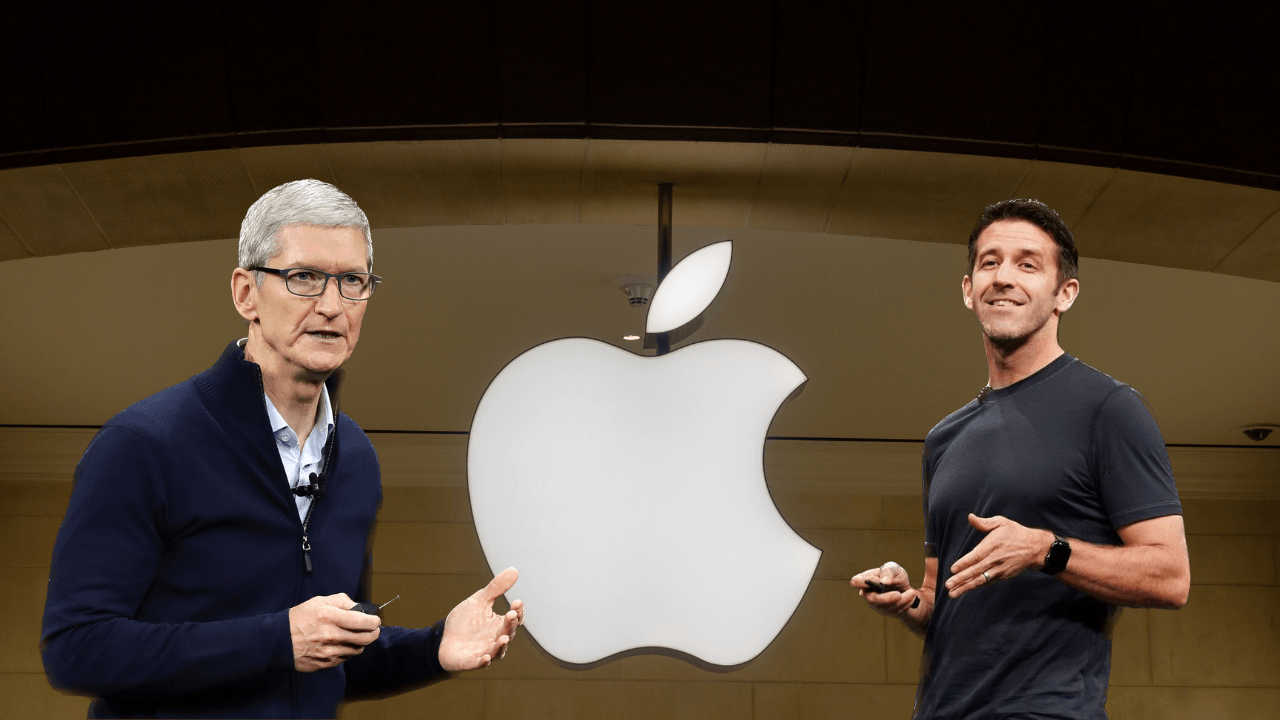How Automakers Use Social Listening to Design the Cars of Tomorrow

Summary
The automotive industry is increasingly leveraging social listening to transform consumer conversations into actionable design insights. By analyzing real-time feedback from social media, forums, and dealership reviews, automakers can identify emerging trends, unmet needs, and feature preferences across every stage of vehicle development—from concept and prototype to launch. Key areas influenced by these insights include in-car technology, EV battery performance, safety systems, interior comfort, and sustainable materials.
Introduction
The cars of tomorrow are not designed in isolation—they are shaped by the voices of millions of consumers. From TikTok reviews and Reddit threads to dealership feedback and EV forums, today’s automakers have access to an unprecedented stream of consumer opinion.
The challenge? Knowing how to harness it. That’s where social listening comes in. By analyzing online conversations in real time, automakers can uncover unmet needs, track shifting trends, and integrate consumer desires directly into product development.
At RILA Global Consulting, a WBENC-certified women-owned business, we specialize in helping the automotive industry transform consumer conversations into data-driven insights that fuel design innovation.
Why Social Listening Matters in Automotive Design
Traditional market research methods—focus groups, surveys, and sales data—remain valuable, but they often lag behind consumer expectations. Social listening, on the other hand, provides instant feedback loops that can guide automakers through each stage of design.
- Concept phase: Spotting early conversations about emerging tech or consumer frustrations.
- Prototype phase: Testing reactions to leaked images or concept car reveals.
- Launch phase: Measuring sentiment on features, pricing, and performance.
In an industry where consumer preferences can shift overnight, automakers that integrate social listening insights into design are better equipped to deliver cars that resonate.
Key Areas Where Social Listening Shapes Car Design
1. Technology Integration
Conversations about in-car connectivity, infotainment systems, and smart features dominate online forums. Automakers use these insights to decide whether to prioritize larger touchscreens, seamless smartphone integration, or advanced AI-powered assistants.
- Example: Rising mentions of voice-command frustrations have pushed automakers to improve natural language processing in next-gen models.
2. EV Design and Battery Performance
“Range anxiety” is one of the most discussed topics in EV forums. Social listening helps automakers identify specific consumer concerns—like charging station availability, charging times, and real-world mileage.
- Example: Monitoring online discussions helped one manufacturer prioritize fast-charging technology and highlight it in their design and marketing strategy.
3. Safety Features
Safety is consistently among the top consumer priorities. Online conversations reveal not just what safety features people want (blind-spot detection, lane assist, collision alerts) but also how much they trust them.
- Example: When social chatter spiked around false activations of lane departure warnings, automakers used this feedback to refine sensor calibration.
4. Comfort and Interior Experience
From seat ergonomics to climate control systems, comfort drives perception. Social listening highlights frustrations such as hard-to-use climate touch controls or praises for luxurious seat materials.
- Example: Complaints about “too many touchscreens” have inspired some brands to bring back physical knobs for frequently used features.
5. Sustainability and Materials
Eco-conscious buyers are increasingly vocal about sustainable materials. Conversations about vegan leather, recycled plastics, and carbon-neutral production give automakers insights into how to position their design choices.
- Example: A rise in mentions of “vegan interiors” led one luxury brand to release a new trim option entirely free of animal-based products.
RILA in Action: Turning Social Signals Into Design Innovation
At RILA, we help automakers move from listening to action:
- Spotting white space opportunities: Detecting consumer needs not addressed by competitors.
- Design validation: Testing reactions to concept designs across social channels.
- Feature prioritization: Identifying which innovations will drive adoption vs. which feel unnecessary.
- Regional design preferences: Comparing EV expectations in Europe vs. the U.S. vs. Asia.
For example, in one project, our analysis revealed that while global EV buyers focused on battery performance, U.S. consumers were far more vocal about interior space and family-friendly design. Our client used this intelligence to prioritize features for their North American launch strategy.
The WBENC Advantage
Working with a WBENC-certified women-owned consulting firm like RILA Global Consulting gives automakers the benefit of diverse perspectives and inclusive insights—critical for designing cars that appeal to today’s global, multicultural audiences.
Beyond supplier diversity compliance, our WBENC certification reflects our commitment to innovation, representation, and excellence in every project we deliver.
About RILA Global Consulting
At RILA Global Consulting, we help the automotive industry design smarter, faster, and with greater consumer alignment. By combining social listening, market research, and AI-powered analytics, we give automakers the intelligence needed to design the cars of tomorrow—vehicles that meet real-world needs and exceed consumer expectations.
From EV adoption barriers to luxury vs. economy perception shifts, our insights shape strategies that deliver measurable impact.
👉 Ready to future-proof your automotive strategy?
Connect with us at RILA Global Consulting and let’s turn today’s conversations into tomorrow’s automotive innovations.
Read More

Apple CEO Speculations Intensified as Tim Cook's Future Remained Uncertain
Speculation around Tim Cook’s future as Apple’s CEO has intensified, igniting global debate about who might lead the tech giant into its next era. With over 56,000 online discussions in just 24 hours, consumers voiced both anticipation and anxiety over potential leadership shifts that could reshape Apple’s identity, innovation pace, and pricing strategy. John Ternus, Apple’s hardware chief, has emerged as the most likely successor—praised for his engineering expertise but questioned for his limited exposure to services and AI. As Apple faces new challenges spanning artificial intelligence, regulatory complexity, and global market pressures, the company’s next leader must balance continuity with transformation. The outcome of this succession could redefine not only Apple’s internal direction but also the trajectory of the entire tech industry.
October 17, 2025
READ MORE

ChatGPT Becomes the New Therapist and Dating Coach for U.S. Adults
A growing number of Americans are turning to ChatGPT not just for information, but for intimacy, reflection, and emotional healing. Between September and October 2025, online discussions about using ChatGPT as a therapist and dating coach surged — revealing a cultural shift where artificial intelligence is stepping into deeply personal spaces once reserved for humans. From helping users process grief and heartbreak to coaching singles through modern dating dilemmas, ChatGPT is becoming an emotional companion for a digital generation. As AI evolves from a productivity tool into an empathetic partner, it’s redefining how people connect, communicate, and care — prompting society to question not just what technology can do, but how it makes us feel.
October 16, 2025
READ MORE

Walmart’s AI Bet Sparks Backlash: Innovation Meets Consumer Anxiety
This collaboration aims to transform how people shop: AI will learn consumer preferences, anticipate needs, and complete purchases automatically, blurring the line between decision-making and delegation. Yet this futuristic convenience has triggered a wave of backlash. Many consumers view the partnership as another step toward automation that prioritizes efficiency over employment, deepening fears of job displacement across the retail sector. Social media reactions reveal a split between fascination and distrust — admiration for Walmart’s technological leap colliding with anxiety about corporate control of AI. The controversy underscores a defining tension of our time: as companies race to make life easier through artificial intelligence, the public is asking harder questions about who truly benefits — and who might be left behind.
October 16, 2025
READ MORE

How U.S. Consumers Talked About Tariffs in 2025: Wallets, Politics, and Global Tensions
English-speaking Americans largely saw tariffs through the lens of their wallets, describing them as a “hidden tax” driving inflation, while Spanish-speaking voices focused on food security, and U.S.–Brazil–BRICS relations. The digital debate fractured along lines of economics and identity: one camp lamenting higher prices, the other defending tariffs as a show of national strength. Yet across 25 million conversations, both groups arrived at a shared realization — that tariffs aren’t abstract policy levers but forces shaping what people can afford, how nations relate, and who ultimately bears the cost of global tension.
October 14, 2025
READ MORE

Behind the Breakthrough: How RILA GLOBAL CONSULTING Supported a Newly FDA-Approved Oncology Therapy
RILA played a critical role in supporting the recent FDA approval of a breakthrough oncology therapy designed for patients with limited treatment options after first-line chemotherapy. Acting as a strategic insights partner, RILA provided end-to-end intelligence—from identifying and engaging key opinion leaders to conducting patient unmet-needs analysis, complaint listening, and investor relations research. Our integrated approach combined social listening, pharmacovigilance, and competitive intelligence to guide scientific communication, regulatory readiness, and launch strategy. This approval not only represents an important advancement for patients and the oncology community but also highlights how RILA’s data-driven, patient-informed methodologies empower biopharma companies to bring meaningful, evidence-based innovations to market.
October 14, 2025
READ MORE

The Starbucks Effect in Reverse: What Store Closures Reveal About Housing and Community Stability
Once a marker of rising property values and revitalized streets, Starbucks’ retreat now sparks fears of community decline and economic fragility. As residents lament the loss of their local café, they’re really mourning a deeper shift—the unraveling of a familiar urban narrative where growth was measured by the green siren’s glow. In the “Starbucks Effect” reversed, America’s coffee map may be telling a new story about housing, belonging, and the fragile balance between commerce and community.
October 10, 2025
READ MORE

Why Food & Beverage Brands Can’t Ignore TikTok Recipes
The food and beverage industry is no longer shaped solely by glossy ads or in-store promotions — today, viral content and online conversations, especially on platforms like TikTok, drive consumer choices before they ever step into a store or restaurant. Brands that harness social listening and combine it with traditional market research can detect emerging trends, anticipate shifting tastes, and transform fleeting viral moments into lasting growth. At RILA Global Consulting, we turn digital chatter into actionable intelligence, helping companies stay ahead of the curve, innovate products, and craft culturally relevant campaigns that build loyalty and boost sales. In a world where trends can explode overnight, the ability to listen, interpret, and act is the ultimate competitive advantage.
October 3, 2025
READ MORE

How Airlines Can Detect Service Issues Before They Escalate Online
In today’s hyper-digital world, the battle for airline loyalty is no longer fought in loyalty programs or post-flight surveys—it unfolds in real time across TikTok feeds, Twitter threads, and Reddit forums. A single complaint can snowball into a viral crisis, yet the same digital conversations hold the key to preventing service failures and building trust. By merging social listening with market research, airlines can shift from reactive crisis control to proactive service strategy, transforming fleeting frustrations into lasting loyalty. The question is no longer if airlines should listen—it’s whether they can afford not
October 3, 2025
READ MORE

Consumer Insights on Smart Homes and Energy Efficiency
The energy and utilities sector is no longer about static bills and passive consumers—it’s about dynamic, digital-first relationships shaped by real-time conversations. From Reddit threads about thermostats to viral reviews of solar devices, consumers are rewriting the rules of engagement, demanding smarter, greener, and more personalized solutions. Companies that rely only on traditional surveys risk being left behind, while those embracing always-on social listening and market research gain the ability to anticipate needs, spark innovation, and lead the transition toward sustainable living. The question is: will brands continue to react to yesterday’s data, or will they start shaping tomorrow’s energy future today?
October 3, 2025
READ MORE